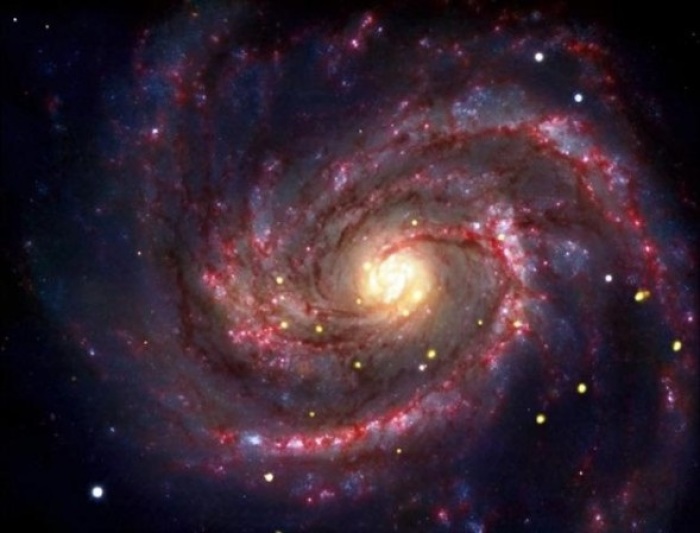Prominent Christian Conservative Writer Praises New Evidence for 'Big Bang'
A prominent conservative Christian columnist took to his blog earlier this week to express his enthusiasm for new revelations that scientists believe offer strong support for the big bang.

The concept of cosmic inflation, where the universe rapidly and dramatically expanded from "something almost infinitesimally small" to "something imponderably vast" received additional support this week.
Researchers in the South Pole announced on Monday that they had "detected ripples from gravitational waves created in a violent inflationary event at the dawn of time," reported The Washington Post.
John Kovac of the Harvard-Smithsonian Center for Astrophysics said in an interview that his team's findings closely correlated with the theory of cosmic inflation.
"We're very excited to present our results because they seem to match the prediction of the theory so closely," said Kovac. "But it's the case that science can never actually prove a theory to be true. There could always be an alternative explanation that we haven't been clever enough to think of."
Rod Dreher, an Orthodox Christian who blogs for The American Conservative, called the new research "a beautiful thing."
On Tuesday, Dreher initially posted the findings, noting wryly, "There was nothing, and then, in an instant, there was something. It's almost like somebody created the cosmos out of nothing."
Dreher later added that while he was fully cognizant that Kovac's team's findings did not "prove God's existence, or that God created the universe," he hoped that it might nudge some of his secular friends to reconsider their agnostic positions.
"Let me state here without fear of contradiction that I do not believe science can ever prove such a thing, though astrophysics and cosmology can make (and is making, I think,) belief in an Intelligent Designer more credible," he argued. "See the work, for example, of cosmologist Paul Davies (here and here), comfortable neither with theism nor atheism, but whose work is helpful to the theist case. I was baiting you secularists, and it tickles me to see that some of you took the bait. Don't y'all ever wonder sometimes if you're wrong?"
In a post on Wednesday, Dreher reflected on what the big bang findings helped him understand about himself and his place in the world.
"The first philosophical thought that comes to my mind is how uncanny it is that a phenomenon as big as the universe is being comprehended by the indescribably small specks that are human beings," he wrote. "My second thought is that we can comprehend that, but our own selves remain a mystery to us. My third thought, a theological one, is that as indescribably vast as the universe is, it is still nothing to the immensity of the One who made it."
Since the 1920s, scientists led by astronomer Edward Hubble, have concluded that the universe is expanding through observations of galaxies drifting apart. Researchers have also established that at one time "the universe was initially infinitely hot and dense, literally dimensionless. There was no space, no time."
"Then something happened. The universe began to expand and cool. This was the big bang," which cosmic inflation suggests caused the universe not to slowly take shape, but rather to balloon swiftly, in less than a "fraction of a second."
Harvard scientist Avi Loeb, who studies astrophysics and cosmology, said that Kovac's research offered "new insights into some of our most basic questions."
"Why do we exist? How did the universe begin? These results are not only a smoking gun for inflation, they also tell us when inflation took place and how powerful the process was," he said in a statement.
The new research also reveals a relationship between quantum mechanics and and Albert Einsten's theory of general relativity, which the scientist had predicted, but had never confirmed.




























